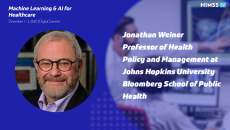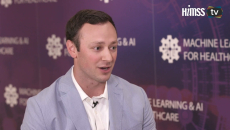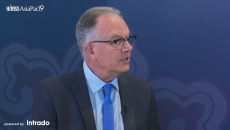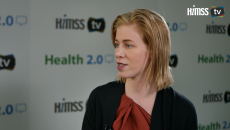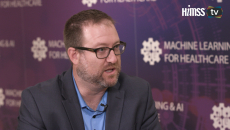machine learning
Jonathan Weiner, professor at Johns Hopkins Bloomberg School of Public Health, discusses some of the data fundamentals that are essential for effective artificial intelligence and machine learning algorithms.
Sibu Siddique, VP of Digital Transformation and Customer Success at GE Digital, says tools such as artificial intelligence and machine learning will support patient mobility, and associated data, in the future.
Machine learning is transforming imaging, decision support, clinical workflow and physician-patient interaction, says Dr. Anthony Chang, chief intelligence and innovation officer at Children's Hospital of Orange County.
Deep Dive: From clinical decision support to revenue cycle to cybersecurity, machine learning algorithms are already transforming healthcare, although much depends on how they're implemented.
Joseph Dorocak, manager of population health analytics at Cleveland Clinic, describes some of the staffing and process strategies the health system uses as it puts AI to work to improve patient outcomes and financial return.
Peter Faulkner, CEO of Bendigo Health, says increased demand is changing the business of hospital management; tech advances around supply chain and machine learning can help.
Medal's collaboration platform for common workflows translates a wide variety of formats into FHIR data to be exported downstream, says co-founder and CEO Lonnie Rae Kurlander.
Flagler Hospital CMIO Dr. Michael Sanders describes how clinicians are using unsupervised learning algorithms to reduce costs and prevent medical errors.
Automating machine learning and artificial intelligence improves the speed and accuracy of predictive models, says DataRobot GM of Healthcare Colleen Greene.
AI has moved beyond its status as a novel technology with exciting potential use cases to one that is helping solve real-world issues and improving patient outcomes, says Todd Schlesinger, VP of business development at Jvion.
